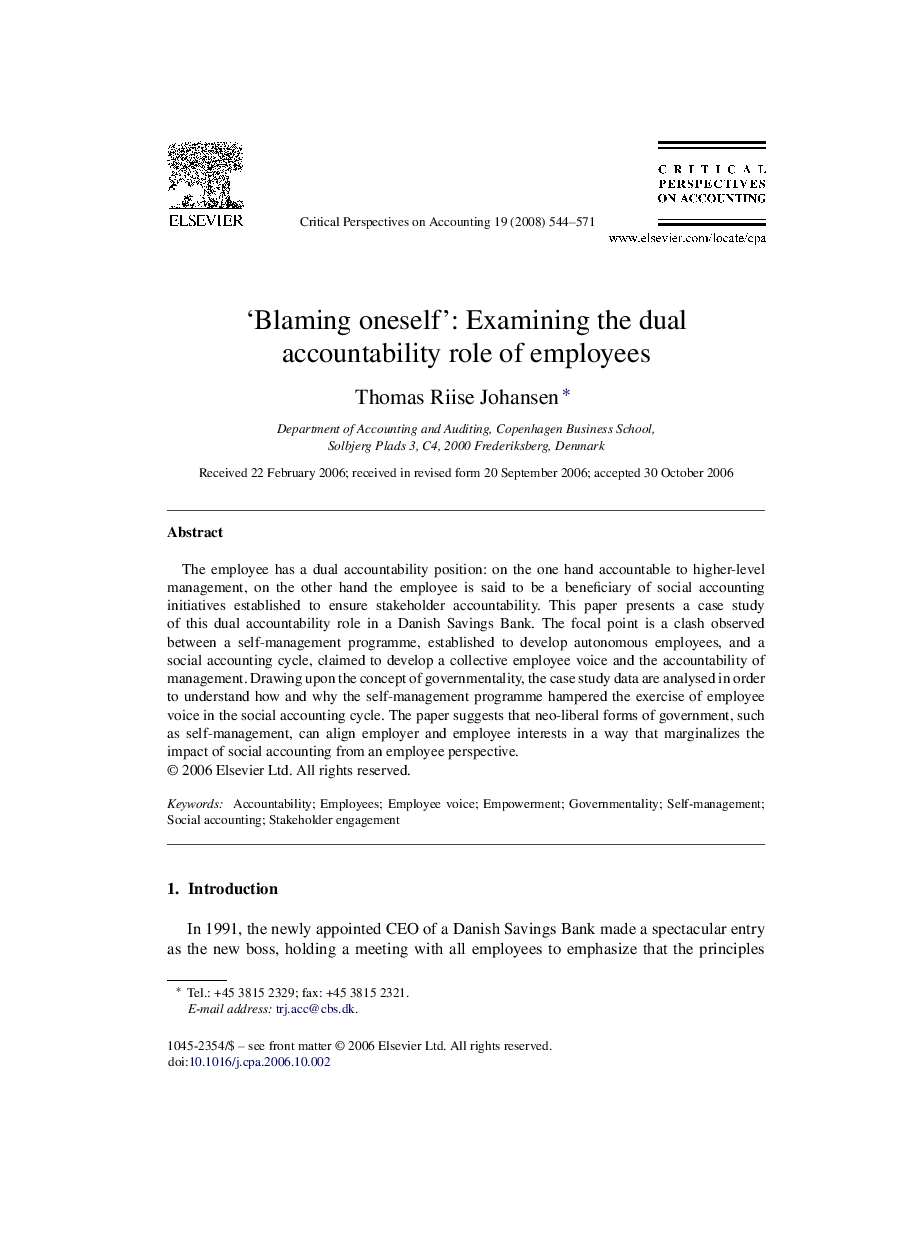| Article ID | Journal | Published Year | Pages | File Type |
|---|---|---|---|---|
| 1001044 | Critical Perspectives on Accounting | 2008 | 28 Pages |
The employee has a dual accountability position: on the one hand accountable to higher-level management, on the other hand the employee is said to be a beneficiary of social accounting initiatives established to ensure stakeholder accountability. This paper presents a case study of this dual accountability role in a Danish Savings Bank. The focal point is a clash observed between a self-management programme, established to develop autonomous employees, and a social accounting cycle, claimed to develop a collective employee voice and the accountability of management. Drawing upon the concept of governmentality, the case study data are analysed in order to understand how and why the self-management programme hampered the exercise of employee voice in the social accounting cycle. The paper suggests that neo-liberal forms of government, such as self-management, can align employer and employee interests in a way that marginalizes the impact of social accounting from an employee perspective.
